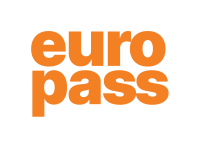
21st Century Skills for Teachers and Students
Participants will discover new methods to help their students meet not only the requirements of their educational curriculum but also those of the modern, increasingly faster society. They will take part in various practical activities focusing on the creation of lessons with the exploitation of strategies such as task-based learning, project-based learning, and the flipped classroom method.
Description
Our society is becoming faster and faster, and more and more demanding. Within that, students seem to be every day less motivated to learn pure content and more in need of skills for building their life paths and professional careers. At the same time, teachers often feel they lack effective tools to educate nowadays’ learners and to deal with nowadays’ school curricula. This course will guide participants in finding a “compromise” between the demands of school curricula, students’ motivations, and the need to develop their competencies. Participants will inquire how theories can be connected to real life, how knowledge is incorporated into wide competencies, as well as what “competence” should mean in the educational domain. They will also explore features, examples, pros, and cons of various teaching methodologies. They will also get involved in many practical activities to design lessons with Task-Based Learning, Project-Based Learning, and the Flipped Classroom. In addition, they will get ideas on how to possibly incorporate visual resources to introduce some topics, as well as on how to assess students during the learning process with the use of rubrics. By the end of the course, participants should be more familiar with the concept of competencies in nowadays’ education. They will feel more creative in finding out tailor-made solutions using tools such as task-based learning, project-based learning, the flipped classroom, and the visual thinking strategy. In addition, they will take away lesson plans and activities with the aim of making subjects more relevant, meaningful, and useful for students’ lives and careers. No prior knowledge about those specif...read more.
Learning objectives
The course will help the participants to:
- Become more confident in incorporating 21st-century skills within their teaching goals;
- Guide students in grasping the meaning and relevance of certain subjects at school;
- Design lessons through methods to teach both contents and skills;
- Appreciate the differences between different teaching methods: task-based learning, project-based learning, the Flipped Classroom;
- Construct tailor-made activities for students using those methods, based on the specific learning goals of the subject.
--> Download all course info in PDF <--
Methodology & assessment
Certification details
Here's how we ensure your achievements are recognized and validated:
- Certificate of Attendance: Upon successful completion of your course, you will receive a Certificate of Attendance in line with Erasmus quality standards.
- Europass Mobility Certificate: If requested, you can also receive the Europass Mobility Certificate.
- Seamless Administration: We provide assistance and guidance to our participants throughout every step of the project: from the grant application to the final documents.
To make your participation accessible, our courses are designed to allow you to request 8 days of individual support for your subsistence costs. This includes 6 days for the course and an additional 2 days for travel.
Useful resources:
- Live Chat support: Monday-Friday | 8:30-22:30 CET
- FAQ
- Guides to Erasmus+
- OID Numbers and Fiscal Data
A 60 € late registration fee will be applied if you register less than 8 weeks before the course start date.
Pricing, packages and other information
-
Price:480Euro
Additional information
-
Language:English
-
Target audience ISCED:Early childhood education (ISCED 0)Primary education (ISCED 1)Lower secondary education (ISCED 2)
-
Target audience type:TeacherHead Teacher / PrincipalOther
-
Learning time:25 hours or more
Past sessions
More courses by this organiser

Happy Schools: Positive Education for Well-Being and Life-Skills Development

Innovative Educational Leadership: Your Soft Skills Toolkit


